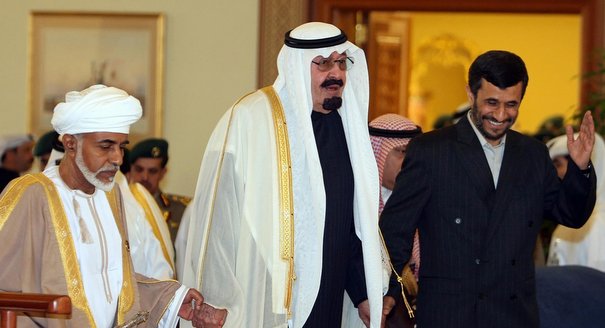Any effective U.S. diplomatic approach to Iran must involve other countries in the Gulf, but Washington will not succeed if it continues to strive for an anti-Iranian alliance. While an overall security arrangement including all Gulf countries is not possible at this stage, a normalization of relations between Iran and its neighbors is an important and attainable step for reintegrating Iran into the international community, Marina Ottaway concludes in a new paper.
Gulf countries can help engage Iran in negotiations, but messy and often significant divisions between them complicate efforts to normalize relations. Ottaway analyzes Iran’s relationship with the Gulf Cooperation Council (GCC) countries—Saudi Arabia, Kuwait, Bahrain, Qatar, the United Arab Emirates, and Oman—as well as Jordan, Israel, Egypt, and Iraq.
Key Conclusions:
- Despite common fears over Iran’s rising power and potential nuclear threat, GCC countries are neither united in their response nor willing to confront Iran in public. They vacillate between overtures of goodwill and disputes over borders, oil rights, and religious sectarianism.
- The GCC has no leader in developing an Iran policy. Saudi Arabia, a natural choice because of its size and wealth, has a long history of cautious policies that maintain the status quo.
- Egypt and Israel view Iran as a completely hostile entity and do nothing to hide their views, but it is unrealistic to anchor a regional strategy on their positions. Israel is not recognized by most of its neighbors, and Egypt faces a looming succession and diminished regional influence.
- Despite a long history of animosity, Iraq’s relations with Iran are improving as Iran cultivates ties with Iraq’s now dominant Shi’i political factions. These ties have aroused suspicion among Iraq’s mainly Sunni neighbors and and prevented Iraq’s full reintegration in the region.
- The United States should not force the GCC countries to choose sides between the United States and Iran, nor Iraq and Iran.
“Although during the negotiations over Iran’s nuclear program Gulf countries are essentially spectators to a process—the outcome of which will be determined by the United States, Iran, major European countries, Russia, and China—GCC countries have an important role to play in the difficult process of reintegrating Iran into the international community,” Ottaway writes. “Normalization of relations among the GCC countries, Iraq, and Iran would be a positive step in this process of reintegration. It would also help stabilize the region, decreasing tensions and the possibility of conflicts over bilateral issues that might trigger more serious problems.”





